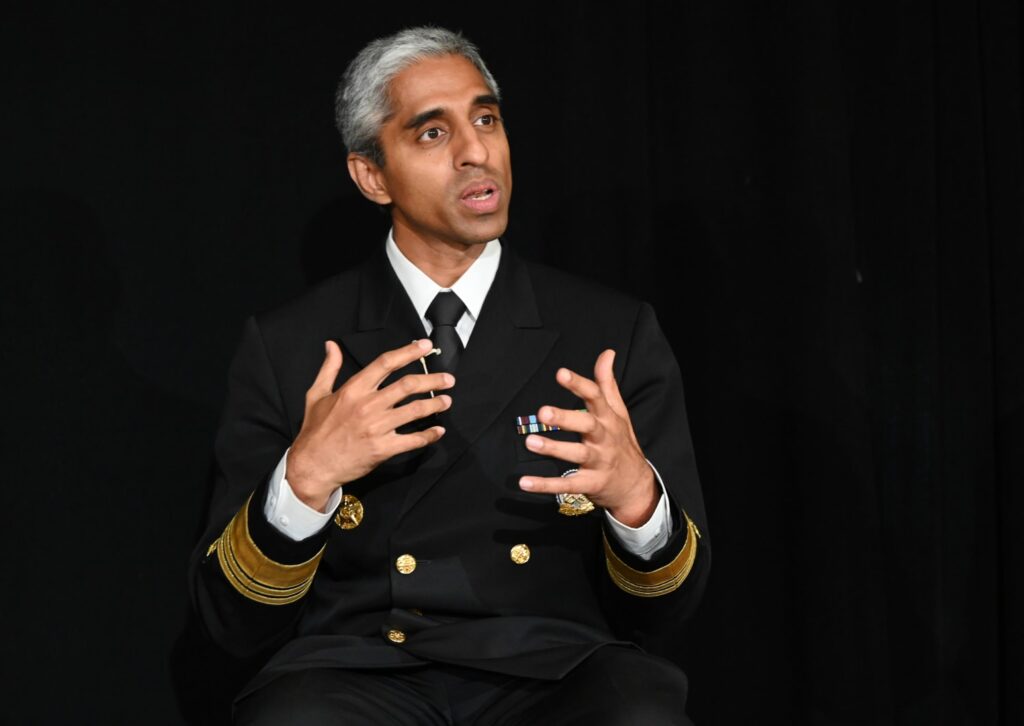U.S. Surgeon General Vivek Murthy on Monday urged Congress to require social media platforms to post tobacco-like warnings to visitors.
In an op-ed published in the New York Times, Murthy said the youth mental health crisis was an urgent issue and that social media was “playing a significant role”.
He said the warning initiative would also include language to warn users about the potential harm that websites and apps could cause to their mental health.
“The Surgeon General's warning labels, requiring Congressional action, would regularly remind parents and adolescents that social media has not been proven safe,” he wrote.
Tune in to “TODAY” on Monday at 7 a.m. ET/6 a.m. CST to hear our exclusive interview with Murthy.
In 1965, following Surgeon General Luther L. Terry's landmark report the previous year linking smoking to lung cancer and heart disease, Congress mandated unprecedented warning labels on cigarette packs. The first such label read, “Caution: Smoking may be injurious to your health.”
“Evidence from cigarette labels shows that Surgeon General warnings can raise awareness and change behavior,” Murthy wrote in the editorial, but he acknowledged limitations and said labels alone cannot make social media safe.
Congress, social media companies, parents and others can take steps to mitigate risks, ensure a safer experience online and protect children from harm, he wrote.
In his op-ed, Murthy linked the amount of time spent on social media to an increased risk of children experiencing symptoms of anxiety and depression.
Teens spend nearly five hours each day on popular platforms like YouTube, TikTok and Instagram, according to the American Psychological Association, which found in a 2019 study that the rate of young people experiencing suicidal thoughts or other suicide-related outcomes increased 47% between 2008 and 2017, when social media use among this age group soared.
And that was before the pandemic caused a year's worth of virtual isolation in the U.S. In early 2021, as pandemic lockdowns continued, Murthy called on social media platforms to “actively enhance and contribute to the mental health and well-being of children.”
Recommendation
In January, at a Senate Judiciary Committee hearing on the impact of social media on young people, Meta CEO Mark Zuckerberg apologized to parents who claimed that Meta's platform, Instagram, contributed to the suicide and exploitation of their children.
“I'm sorry for everything you've gone through,” he said. “It's awful. No one should ever go through what your family went through.”
The Surgeon General's advisory on social media mental health, released last year, cited research that said potential harms of social media include exposure to violent and sexual content, bullying, harassment and body criticism.
Murthy's 2023 recommendations also highlighted the role that social media is not playing, which doesn't necessarily improve mental health through the tried-and-true method of face-to-face interaction.
“For too many children, social media use comes at the expense of sleep and precious in-person time with family and friends,” he said in a statement announcing the health advisory last year.
“The culture of people talking to each other is gone,” Murthy said last month at a conference on the youth mental health crisis.
He cautions that the research on this issue is inconclusive, with much of it finding a correlation between time spent on social media and negative effects on mental health, but not causation.
“Further research is needed to fully understand the impact of social media,” he said in his recommendations last year.
And he acknowledges that social media can help teens find community, connection and an outlet for self-expression.
The companies behind the world's most popular social media platforms have yet to respond to Monday's op-ed.
If you or someone you know is in crisis, please contact the Suicide and Crisis Lifeline by calling or texting 988 or chat live at 988lifeline.org. For additional support, visit SpeakingOfSuicide.com/resources.
If you or someone you know is struggling with an eating disorder, visit the National Eating Disorder Association website.



